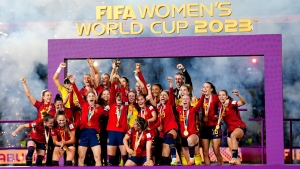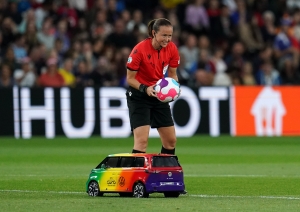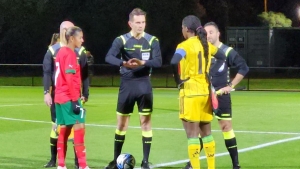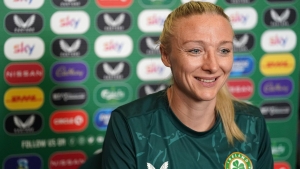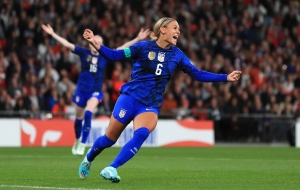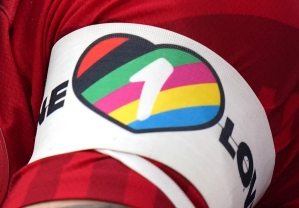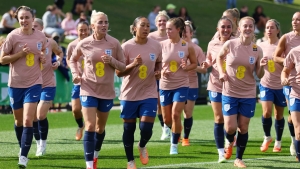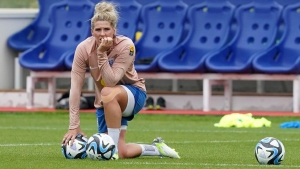England will head into the Women’s World Cup having played more total minutes than any other leading country, according to a report by global players’ union FIFPRO.
Workload and injuries have been a major talking point in the women’s game, with a particular focus on the number of players suffering ACL damage.
Arsenal defender Leah Williamson, who captained England to European Championship success last summer, and Beth Mead, who won the Golden Boot and was named player of the tournament, will both miss the World Cup because of ACL injuries, as will Chelsea’s Fran Kirby with her own knee issue.
FIFPRO’s 2023 FIFA Women’s World Cup Workload Journey Report, published on Thursday morning, examined workload and playing opportunities for players at international and club level.
The England squad’s combined total minutes played in all competitive club and national team matches, from August 1, 2022 to June 3 this year, was 65,398, putting them ahead of Spain (61,894), Portugal (61,508) and the Netherlands (59,970).
England players played a total of 48,222 minutes in domestic club football, with an additional 7,109 coming from international club competitions such as the Champions League.
The domestic football set-up in three of the top five countries on the list – England, Portugal and the Netherlands – also included a second club cup competition, so adding more playing time.
By comparison, current world champions the United States played far fewer minutes overall (46,455), thanks to less club action from those based domestically in the National Women’s Soccer League than their European counterparts, with no international club or second domestic cup competitions.
However, total national team minutes for the USA were 11,316, placing them above both World Cup co-hosts Australia (11,182) and England (9,778).
Some squads in the report are preliminary, based on estimations from digital data and analytics platform Football Benchmark made in mid-June before the confirmation of the official World Cup selections.
Eight countries are missing from the analysis, including China, Argentina and South Africa, due to a lack of available data, with the scarcity of easily-accessible up-to-date match schedules and performance statistics for players another concern highlighted by the report.
“Player workload is an important lens through which to assess some the overall needs of women’s football from an access, development and competitive aspect,” said Sarah Gregorius, FIFPRO’s director global policy and strategic relations for women’s football
“By using the milestone of the Women’s World Cup and the context for participating players, we can see where football stakeholders can come together to improve the international match calendar and make data-driven decisions on how to add and innovate with competitions to better promote performance and well-being for more players.”
The report also addresses issues over the “uneven and fragmented” calendars in the women’s game, which FIFPRO said forces many players in countries where football is less developed to move abroad to improve or face having not enough matches to develop their potential.
Players from the likes of England, Spain and Portugal collectively played around twice as many minutes for their clubs and national teams over the last 10 months as those from Jamaica, Haiti and the Philippines, which FIFPRO feels could impact how ready players are to perform on the World Cup stage.
The players’ union highlighted the need for all regions to stage standalone qualifying competitions for the next Women’s World Cup. At the moment UEFA, Europe’s governing body, is the only one which does.
This would, FIFPRO said, help create a “more balanced qualification system that supports the growth of women’s football worldwide”.
FIFPRO also called for more international club competitions in women’s football and the sustainable growth of domestic leagues, which currently tend to have fewer teams and matches than men’s leagues.
“The FIFA Women’s World Cup is a fantastic celebration of the women’s game, but is also a time to analyse the sometimes patchy development of the sport,” FIFPRO general secretary Jonas Baer Hoffmann said.
“The data shows competitive opportunities for players globally is largely dependent on the context of domestic football in their home country, as well as the availability of international club football.”























